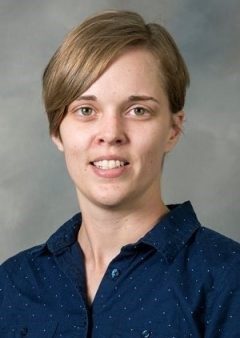Lane, assistant professor in the Dr. Jo Watts Williams School of Education, disseminates three projects centered around inclusion.
Dani Lane, associate professor in the Dr. Jo Watts Williams School of Education, first-authored a piece titled, “Inclusion in a multi-academy trust: possibilities and perils” alongside Sarah Semon, Nicholas Catania and Phyllis Jones from the University of South Florida.
The article was published in the British Journal of Special Education and examined how, despite the understanding that a special school is not an inclusive setting, the senior leadership team (SLT) at Forest Academy Trust perceive their special schools as inclusive. The study of this multi-academy trust (MAT) highlights the need for changes to policies, access to and equitable distribution of resources, curricular freedom balanced with accountability, a shift toward collaborative networking and partnership and a shared vision for enactment, which may be leveraged to provide equitable and sustainable system-wide inclusive practices. The article may be accessed here.

Lane also facilitated two collaborative presentations. The first presentation was at the annual Council for Exceptional Children and deemed a “highly attended” session by the conference. Lane served as first author alongside Semon and Catania from the University of South Florida. The presentation, “Coaching Tools to Support the Implementation of Inclusive Instructional Practices,” highlighted unique features of two models of pre-service and in-service professional development aimed at benefiting practitioners, district leadership and faculty who design, deliver or evaluate instruction to support inclusion. Tools explored in the presentation include observation and coaching tools to support the use of high-leverage practices for co-teaching and high-yield instructional strategies practices.
In her second presentation, Lane served as the second author alongside Dr. Jo Watts Williams School of Education undergraduate research student Maddie Walter. The presentation, disseminated at the virtual Qualitative Report Conference, was titled, “Inclusion Teachers’ Perceptions of Physical Classroom Barriers for Students with ASD.”
The presentation highlighted special education teachers’ perceptions of sensory variables that impact their students with ASD and brought awareness to sensory variables within the inclusion classroom that may have positive or negative effects on students with ASD. Further, this presentation provided an understanding of concrete strategies for immediate implementation with materials that are already present in classrooms.


